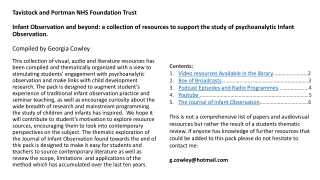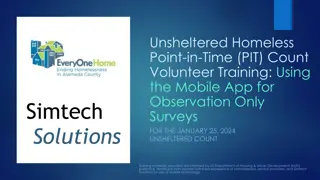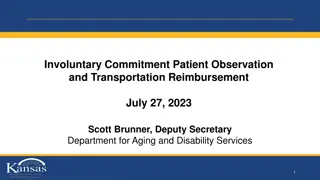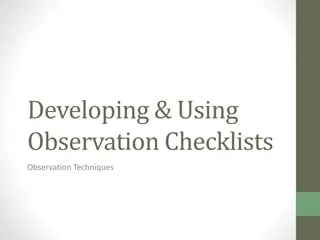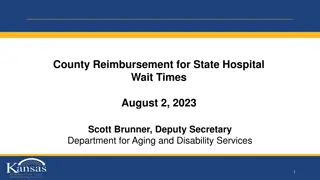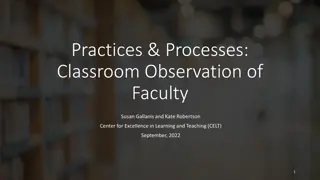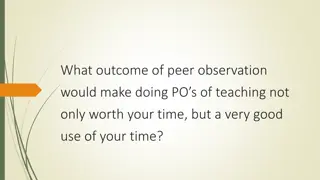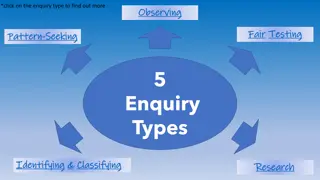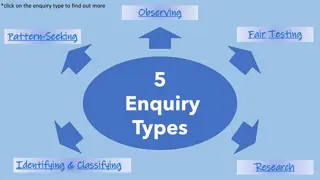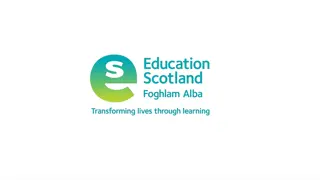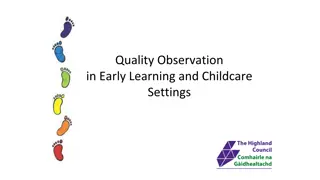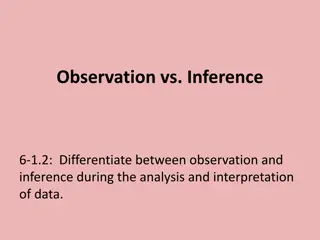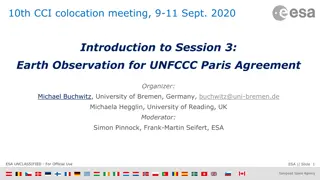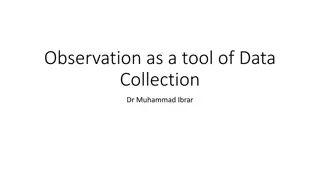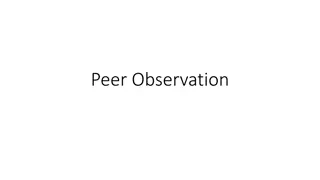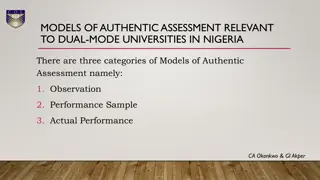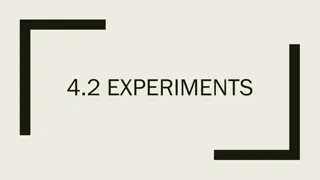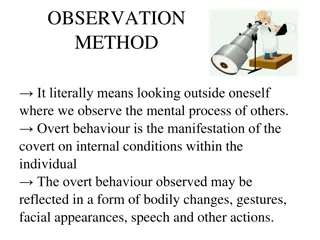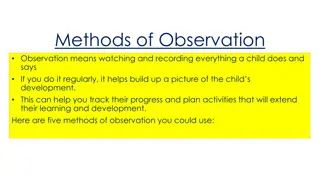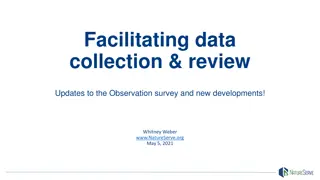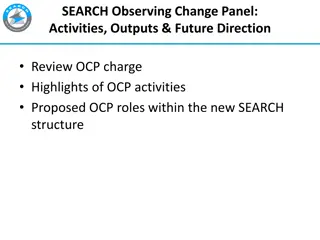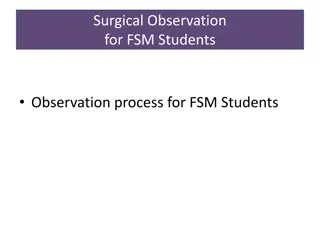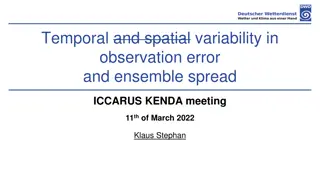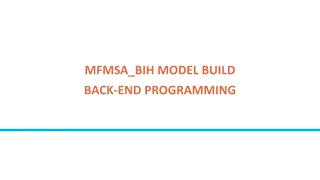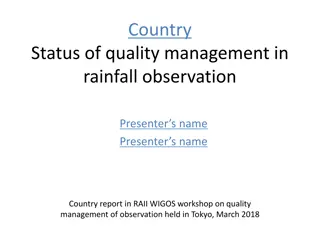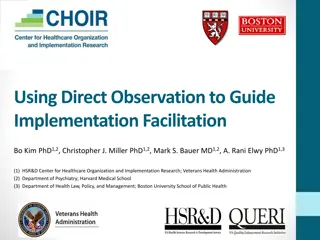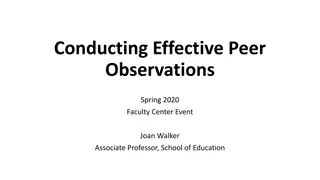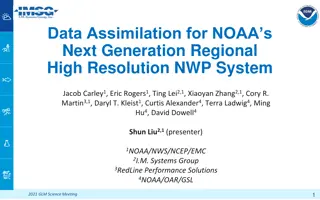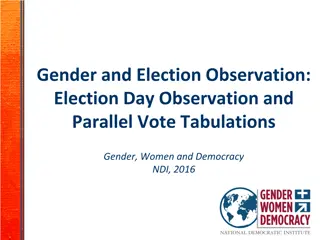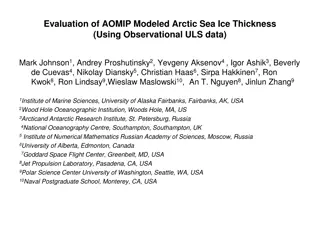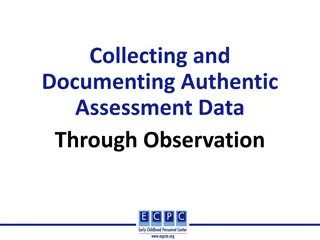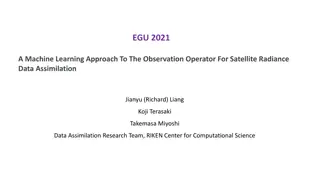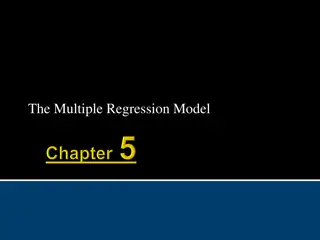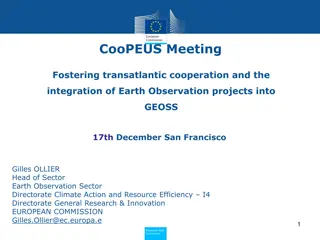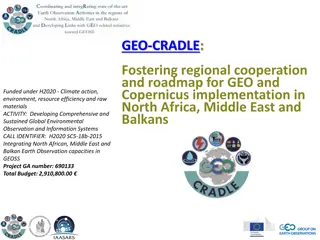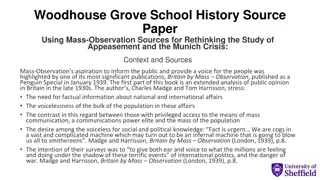Exploring Psychoanalytic Infant Observation: A Resource Collection
Discover a curated collection of visual, audio, and literature resources compiled to enhance the study of psychoanalytic infant observation and its relation to child development. This resource pack aims to engage students with contemporary perspectives, encourage exploration of research sources, and
0 views • 33 slides
Evaluation of SPLASH and HRRR Soil Moisture Comparison
This study compares soil moisture data between the HRRR model and SPLASH observations during the 2022 warm season. It explores differences in soil moisture levels at various depths, evaluates responses to precipitation events, and drydown periods. The research focuses on analyzed data from HRRR Mode
3 views • 12 slides
Hardware Demonstration and Improvements of the Stellar Positioning System
The Hardware Demonstration and Improvements of the Stellar Positioning System (SPS) involve utilizing ancient celestial navigation techniques for lunar exploration. SPS combines central-body-relative observation with star-field observation to determine absolute position, reducing mass/power impacts
5 views • 14 slides
Teaching Observation Process and Best Practices
Explore the teaching observation process with a focus on fostering faculty success and improving teaching practices. Learn about pre-observation meetings, separating observation from evaluation, and utilizing observations to spark dialogue about effective teaching. Access resources such as the Teach
7 views • 20 slides
Unsheltered Homeless PIT Count Volunteer Training using Mobile App
The volunteer training for the January 25, 2024, Unsheltered Count involves using a mobile app for observation-only surveys. Training materials are based on HUD guidance and feedback from those with lived homelessness experience. Volunteers will be assigned locations to canvas and conduct surveys us
0 views • 7 slides
Reimbursement Process for Involuntary Commitment Patient Observation
HB 2184 directs KDADS to reimburse healthcare providers, law enforcement, and county entities for unpaid costs related to patient observation and transportation from July 1, 2023, to June 30, 2024. The process involves registering in SMART, collecting reimbursement requests, and verifying them again
0 views • 12 slides
Using Observation Checklists for Effective Research
Observation checklists are valuable tools in research, allowing for quick and systematic data collection while maintaining objectivity. They help researchers focus, remain objective, and ensure thorough data coverage. Specificity in checklist design is crucial for capturing nuanced behaviors. The ch
0 views • 6 slides
State Hospital Reimbursement Programs Overview
State legislatures in 2023 passed SB 228 and HB 2184 directing KDADS to reimburse counties, healthcare providers, law enforcement, and other entities for costs related to holding individuals in custody, observation, and transportation. SB 228 focuses on competency examination and treatment for defen
1 views • 19 slides
Classroom Observation Practices and Processes at CELT
Classroom observation practices and processes at the Center for Excellence in Learning and Teaching (CELT) involve faculty observations, formative and summative evaluations, and the utilization of the Teaching Observation Form. Observations are conducted by various stakeholders to promote effective
1 views • 16 slides
Enhancing Teaching Through Effective Peer Observation Practices
Peer observation of teaching can be highly beneficial when conducted with specific outcomes in mind. Key elements include scheduling observations strategically, establishing departmental best practices, distinguishing between summative and formative reviews, and adhering to institutional policies. T
0 views • 23 slides
Exploring Scientific Inquiry Methods for Primary School Students
Observation, fair testing, and research are essential methods for primary school students to learn scientific inquiry. Observation questions help in identifying and measuring events over time, fair test questions facilitate comparisons to understand cause and effect relationships, and research allow
0 views • 12 slides
Exploring Different Enquiry Types in Science Education
Observation, fair testing, and research are essential enquiry types in science education that allow students to make observations, conduct fair experiments, and engage in research to explore and understand various phenomena. Observation involves identifying and measuring events over time, fair testi
1 views • 10 slides
Observation Practice: Reflecting on Ethical Observations of Learning
Revisit core features of successful observation practice through reflections on research and practice in this presentation. Explore the responsibilities and ethical considerations when observing and interacting with children. Dive into a case study of an Early Years Educator gathering observations o
0 views • 8 slides
Exploring Quality Observation in Early Learning Settings
This session delves into the significance of observation, interpretation, and documentation of learning in early childcare settings. It discusses the Realising the Ambition approach, emphasizing the planning cycle, reflective practices, and understanding children's interests and development. The imp
0 views • 36 slides
Understanding the Difference Between Observation and Inference
Learn to differentiate between observation (direct facts or occurrences) and inference (interpretations based on existing knowledge or experience) through examples such as the Sun producing heat and light (observation) and a dry, itchy skin leading to the inference that it is dry. The distinction be
2 views • 14 slides
Earth Observation for UNFCCC Paris Agreement Meeting
Introduction to Session 3 of the 10th CCI Colocation Meeting on Earth Observation for UNFCCC Paris Agreement. The session covers presentations, breakout sessions, and discussions on how Earth Observation can support the implementation of the Paris Agreement through case studies and future research d
2 views • 7 slides
Understanding Observation as a Data Collection Tool in Behavioral Science
Observation method serves as a crucial tool for data collection in behavioral science, enabling researchers to systematically record and analyze observable phenomena. This method involves recording behavior patterns without direct interaction, providing in-depth insights into natural settings and in
0 views • 12 slides
Enhancing Peer Observation for Professional Development
Explore the purposes and challenges of peer observation, learn strategies to implement effective peer feedback, bridge institutional requirements with developmental goals, and foster a culture of collaboration in teaching practices. Discover a framework for constructive dialogue, evaluate learning e
2 views • 12 slides
Psychometric Tests Overview: MAP, SPM, Observation Test
Explore three different psychometric tests - Multi-Dimensional Assessment of Personality (MAP), Standard Progressive Matrices (SPM), and Observation Test. MAP assesses personality dimensions, SPM measures intelligence through abstract reasoning, and the Observation Test evaluates your power of obser
4 views • 14 slides
Models of Authentic Assessment in Dual-Mode Universities in Nigeria
Three categories of Models of Authentic Assessment relevant to dual-mode universities in Nigeria include Observation, Performance Sample, and Actual Performance. The Observation model involves assessing students based on performance and attitude, the Performance Sample model evaluates tangible resul
0 views • 27 slides
Understanding Experiments in Research: Observation vs. Experimentation
Observation and experiments are two crucial methods in research. An observational study involves observing and measuring variables without influencing responses, while an experiment deliberately applies treatments to measure responses. Confounding variables can affect the results, and factors like e
0 views • 13 slides
Understanding Observation Methods in Psychology
Observation method in psychology involves looking outside oneself to observe the mental processes of others. It includes types such as participant and non-participant observation, structured and unstructured observation. Steps in the process include planning, execution, interpretation, and reporting
2 views • 10 slides
Effective Child Development Observation Methods
Observing children is a crucial aspect of tracking their development. Naturalistic Observation, Event Sampling, Snapshot Observation, and Non-Participative Observation are effective methods outlined in the content. These methods help in capturing a child's behavior, interactions, and progress, aidin
3 views • 7 slides
Enhancements to Observation Survey for Effective Data Collection and Review
Leveraging the latest updates in Observation Survey v1.4, this tool facilitates the collection and review of observation data seamlessly. From utilizing standardized data models to enabling live data generation, this survey empowers users to create and manage Environmental Observations (EOs) efficie
0 views • 12 slides
Review of SEARCH Observing Change Panel Activities and Future Directions
The SEARCH Observing Change Panel (OCP) plays a crucial role in guiding the development of the observation component of SEARCH. The panel collaborates with various scientific communities to develop and update observation system plans, assess current components, identify gaps, and foster relationship
0 views • 19 slides
Surgical Observation Process for FSM Students
This detailed guide outlines the surgical observation process for FSM students, including obtaining approval, contacting ORSC, identifying surgeons/assistants, and completing necessary forms. Scrub attire requirements, contact information for various departments, and additional notes for smooth obse
2 views • 5 slides
Insights on Observation Error, Ensemble Spread, and Radar Reflectivity in Meteorological Analysis
Explore topics such as temporal and spatial variability in observation error, ensemble spread analysis, baseline observations at DWD, estimation of observation errors, and radar reflectivity analysis. Gain insights into data processing and interpretation in meteorological studies.
0 views • 26 slides
MFMSA_BIH Model Build Process Overview
This detailed process outlines the steps involved in preparing, building, and debugging a back-end programming model known as MFMSA_BIH. It covers activities such as data preparation, model building, equation estimation, assumption making, model compilation, and front-end adjustment. The iterative p
0 views • 10 slides
Challenges and Solutions in Rainfall Observation: A Comprehensive Overview
This report delves into the challenges faced in rainfall observation, such as lack of skilled experts, absence of real-time reporting, and limited knowledge in quality control. It also covers topics like annual rainfall maps, major rainfall-related disasters, rain gauge networks, and applications of
1 views • 8 slides
Utilizing Direct Observation for Implementation Facilitation
This article discusses the importance of direct observation in guiding implementation facilitation processes. It emphasizes the value of formative evaluation to identify influences on implementation effectiveness. By thoroughly collecting data through mixed-methods direct observation, facilitators c
1 views • 29 slides
Effective Peer Observation Strategies for Professional Development
Explore the significance of peer observation in academia, including reasons for conducting it, challenges involved, and a detailed breakdown of the three phases - Before, During, and After observation. Learn about tools for capturing observations, arranging debriefing sessions, and enhancing teachin
0 views • 17 slides
Advancements in NOAA's Next-Generation NWP System
Explore the innovative Data Assimilation techniques and the Unified Forecast System for high-resolution regional modeling at NOAA. The suite aims to simplify operational Earth modeling, combining local and global domains, with an emphasis on observation processing, data assimilation, and verificatio
0 views • 16 slides
Importance of Gender in Democratic Election Observation
Understanding the significance of gender in democratic elections, this content delves into the objectives of gender inclusion in election observation. Key terms such as gender, sex, equality, and equity are explored, highlighting the barriers women may face in the electoral process. Through the lens
0 views • 19 slides
Evaluation of Arctic Sea Ice Thickness Using AOMIP Model and ULS Data
This study evaluates Arctic sea ice thickness utilizing AOMIP modeled data and observational ULS data. The comparison includes ice thickness from models, linear regressions, histogram differences, correlations, and model issues. Location comparisons and model versus observation thickness variances a
0 views • 42 slides
Authentic Assessment through Systematic Observation: Best Practices
Explore the process of authentic assessment through systematic observation in early childhood education. Learn about collecting, documenting, and interpreting assessment data using evidence-based practices and technology. Discover the importance of working collaboratively with families and professio
0 views • 53 slides
Machine Learning Approach for Satellite Radiance Data Assimilation
This research explores using machine learning as the observation operator for satellite radiance data assimilation, aiming to improve the efficiency of the process. By training the machine learning model with model output and observations, the study investigates reducing the need for a physically-ba
0 views • 14 slides
Principles of Econometrics: Multiple Regression Model Overview
Explore the key concepts of the Multiple Regression Model, including model specification, parameter estimation, hypothesis testing, and goodness-of-fit measurements. Assumptions and properties of the model are discussed, highlighting the relationship between variables and the econometric model. Vari
1 views • 31 slides
Fostering Transatlantic Cooperation in Earth Observation Projects through GEOSS
Meeting held in San Francisco discussing the integration of Earth Observation projects into GEOSS, highlighting the importance of GEO and collaboration between the US and EU. Examples include global initiatives like GFOI, GMOS, and GEO BON. Emphasis on the Water Community of Practice and the assessm
0 views • 12 slides
Enhancing Regional Cooperation for Environmental Observation in North Africa, Middle East, and Balkans
GEO-CRADLE project, funded under H2020, aims to foster regional cooperation and integrate Earth Observation capacities in North Africa, Middle East, and the Balkans. It focuses on developing comprehensive environmental observation systems to address societal priorities like climate change adaptation
0 views • 7 slides
Mass Observation in Britain: A Tool for Public Understanding in the Late 1930s
In the late 1930s, Mass Observation played a vital role in understanding public opinion in Britain amidst international crises like the Munich Crisis. Through recruiting volunteers to provide personal observations and conducting focused surveys, Mass Observation aimed to give voice to ordinary peopl
0 views • 8 slides
